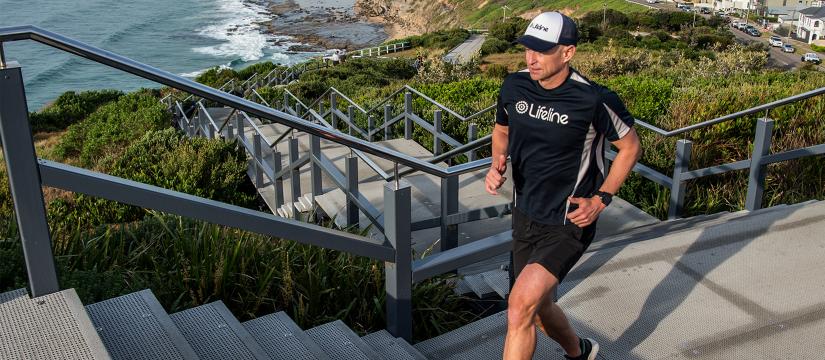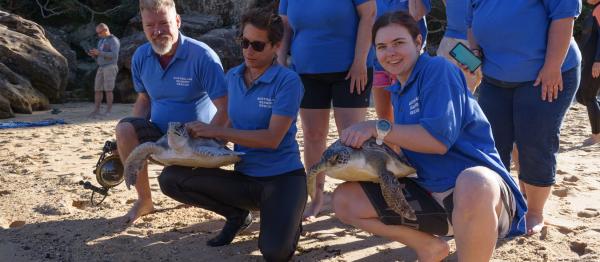
Helping men speak up about their mental health – Lyndsay Walker
When former professional sportsman Lyndsay Walker’s life reached a crisis point five years ago, he discovered new purpose and hope by helping others as a mental health advocate.
“I was 40, a 20-year marriage ended, and had I children close to their 20s,” he says. “I’d had a career where I had a lot of drive, and I was going, ‘Oh my God. What am I going to do now?’ I thought, ‘I’ve got 40 years left in a totally foreign environment to what I’ve ever known’.”
Instead of faltering or becoming dependent on partying and alcohol, Lyndsay chose to rediscover himself. “I thought, ‘I’m going to find out a lot more about who Lyndsay is’,” he says.
He studied sports psychology and joined fundraisers to benefit various charities. Along the way, he realised how many people struggled with their mental health and soon connected with Lifeline Direct in Newcastle. He recently became a trained crisis supporter for the service’s 13 11 14 crisis line.
Having experienced rough and challenging times himself, Lyndsay knows the value of connecting with people when life is difficult. “I don't believe from a young age we’re taught how to cope with these things that are going to come into our lives,” he says. “We get to 25 years or so, these challenges are coming, and we don’t cope that well.”
Lyndsay is particularly motivated to help those who feel ashamed or embarrassed about asking for assistance. “There’s a stigma for some,” he says. “It’s not too weak to speak. I think for a lot of men, it's more difficult. If they’re finding it harder to talk about things, I can say it’s actually OK.
“I’m a bloke and I’m out there baring my emotions and it makes me actually feel better to do that. It’s about having a conversation. The more you don't have conversations to ask for help, or to let your inner emotions out, the more you'll become withdrawn and isolated.”
Leading from the front
Since turning his life around, Lyndsay has thrown himself into fundraising for charity. In 2017 he raised funds and awareness for service personnel support organisation Soldier On by completing a 12-hour, 50,000-stair climb challenge. In 2019, he organised The Newy 100 – a 100-kilometre run that raised $50,000 to support Lifeline Direct's mental health and suicide prevention services.
In October, Lyndsay’s efforts to help others were recognised by a Westfield Local Hero award, an acknowledgement of his tireless drive to support people who are struggling.
“They say there's no greater thing than actually helping someone in society or helping the greater cause,” he says. “Thinking that you potentially help someone – that helps you, too. My life has completely changed. I’ve been doing some good things and I'm getting good things out of it.”
Lyndsay believes support services for mental health have never been more vital. The effect of bushfires and floods on communities and the continuing impact of COVID-19 on people’s lives has seen a significant increase in calls to Lifeline. He says on September 8, two days before World Suicide Prevention Day, Lifeline received 3,326 calls – more than it has received on a single day in its 57-year history.
This year, Lifeline expects its 4,500 crisis supporters will talk or chat to well over one million people through its phone and webchat services. The phone service alone is receiving up to 90,000 calls a month – that’s one person reaching out every 30 seconds.
“What’s important is an organisation like Lifeline is there and it’s got people’s backs,” he says. “We don't give people advice. We just help sit there with their pain or stick with them and understand them better, so they understand themselves better.
"It's trying to make sure that someone feels safe and not take their life. Connect with them and give them a real sense of hope. That's what I want to do – give people hope.”



